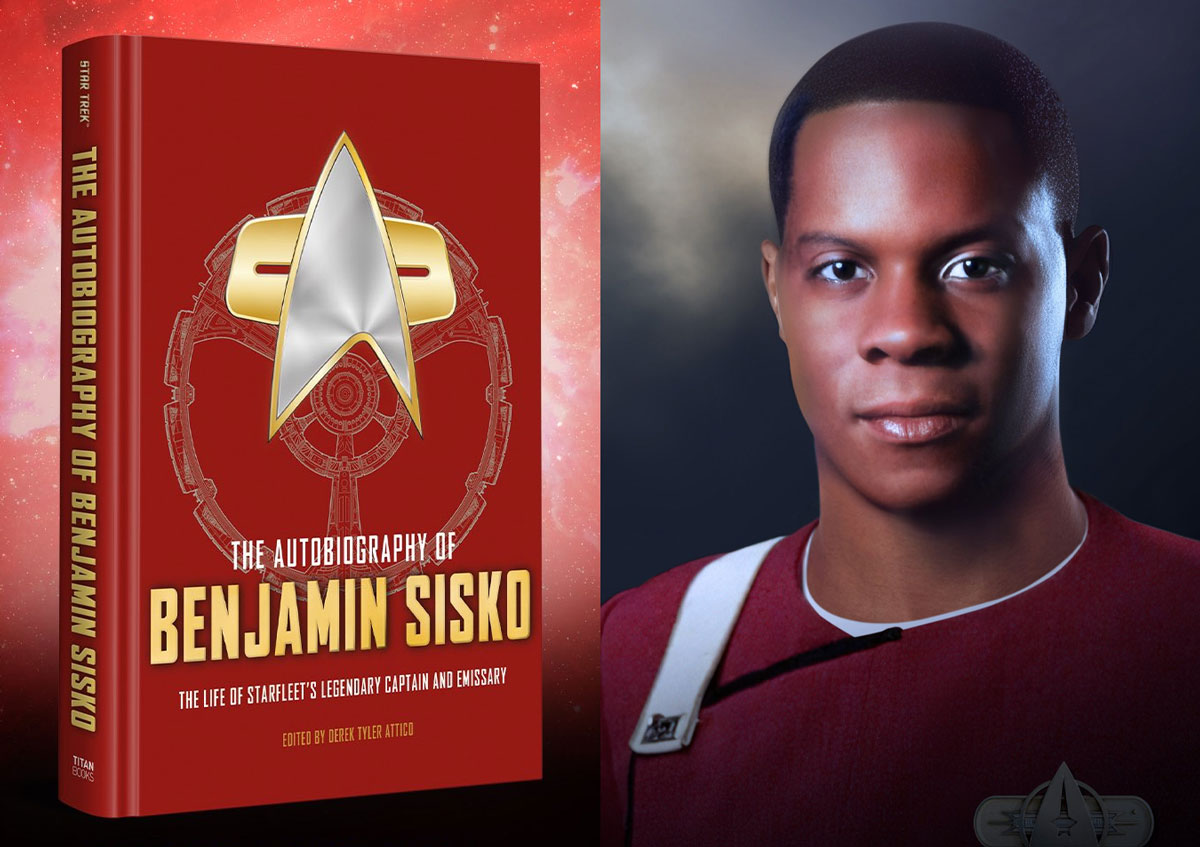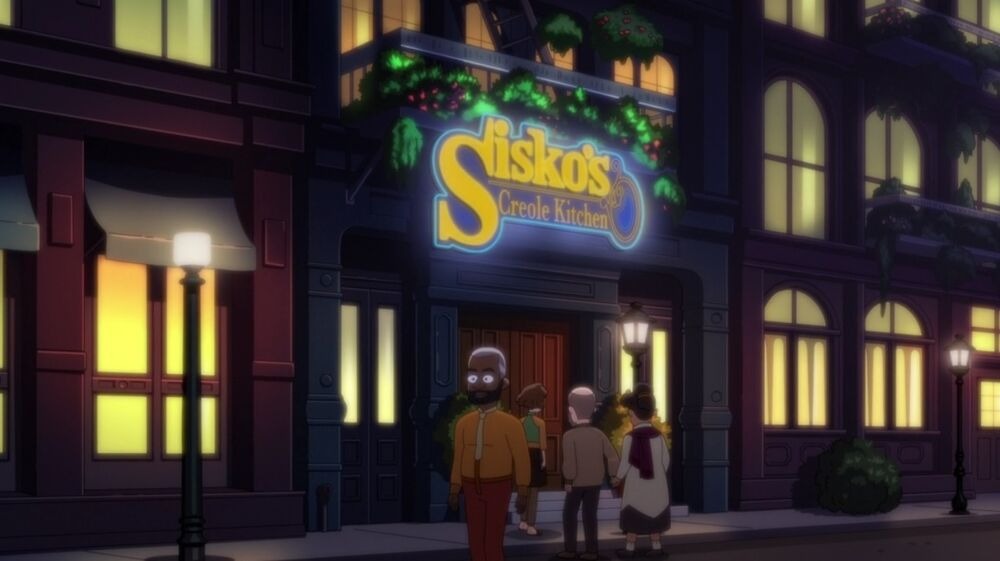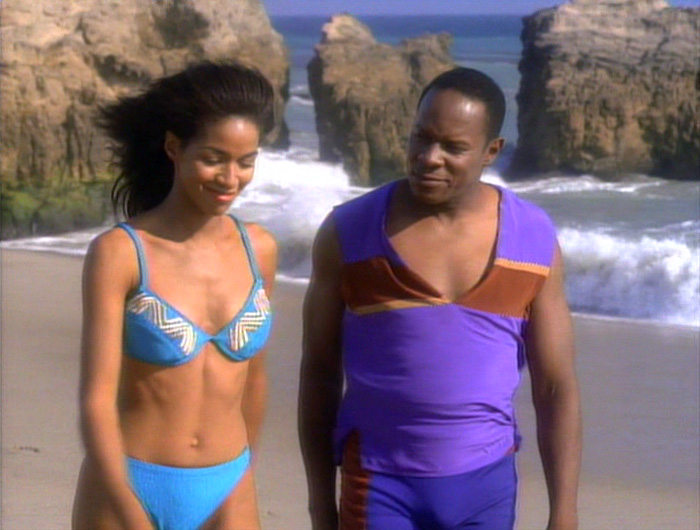The Autobiography of Benjamin Sisko by Derek Tyler Attico is the best of Titan Books’ line of Star Trek autobiographies that it has published to date.
Following the autobiographies of James T. Kirk, Jean-Luc Picard (both by David A. Goodman), Kathryn Janeway, and Spock (both by Una McCormack), Attico takes over for the story of Benjamin Sisko and takes on the hard task of figuring out how to make an autobiography work for a character who ascended to a higher plane of existence — and one whose fate in canon is not yet known.
Previous autobiographies have been written from the furthest point in the character’s life prior to what we know of their death, and included lengthy sections on the character’s life before the events we saw on screen, quick recaps of those on-screen events, and then normally some information about what happened to the character after they last appeared in canon.
In the case of the Picard and Janeway books, this makes for a bit of an awkward read; both were written before the characters’ respective returns in Picard and Prodigy and so the narrative about what happened to these characters after Nemesis and Voyager respectively differ from the canon.

Attico could have made a similar choice for Sisko if he had chosen to tell the story of his return from the Bajoran Wormhole and all the events that happened after. But in a decision that serves the book very well — and also future proofs it against the possibility the character does return in some way in future Star Trek — the author declines to take this route. Established in a framing narrative for the autobiography, this is the story of Benjamin Sisko as told in Deep Space Nine, from his birth all the way through the events of “What You Leave Behind.”
Attico does a great job capturing Ben Sisko’s voice, and telling a story that feels authentic and true to who Sisko is as a person. The book also feels the most authentically connected to the show in which it came from. Previous Star Trek autobiographies from Titan have been a little frustrating in the presence of canon mistakes or interpretations for the characters that don’t make sense. The Sisko autobiography, perhaps because it hews closest to the source material, avoids all of that and fits extremely well with what we know about the Sisko character from the TV show.
It also wrestles with some inconsistencies in the character’s backstory from the show. I hadn’t remembered, for example, that Sisko makes one reference to having two brothers in “Paradise,” in addition to his sister Judith. In the rest of the series, particularly after Joseph Sisko is introduced, the brothers are never mentioned again, and you’d be forgiven for operating under the assumption (as I did before I read this book) that Sisko had only one sibling. Attico weaves all that together nicely, and demonstrates a strong command of the backstory for Benjamin Sisko.

There’s a lot to like in the way Attico breaks down the character’s life and shows us pieces of it, but the best stuff is in describing Sisko’s childhood in New Orleans. Attico brings the Sisko’s restaurant façade briefly glimpsed in the show to life in a vibrant 24th century New Orleans that feels futuristic but retaining the unique culture of the city that its had for several centuries. Sisko’s family, his parents and grandparents, are well rendered, and help you understand where the different aspects of Sisko’s personality came from.
It is also great to go deeper into the Sisko/Dax relationship, this time with Curzon during Sisko’s earlier years. Getting to see how the two character met and how they developed their bond adds depth and nuance to your understanding of Sisko. The same is true of his relationship with Jennifer Sisko; Attico has a smart and surprising take on the way we saw their first meeting in Sisko’s orb vision in “Emissary” that I got a kick out of.

The inclusion of Captain Benjamin Sisko into the line of Titan Books’ Star Trek autobiographies was overdue, but I am pleased that the publishing house waited to find the right author to take on Sisko’s story. They succeeded in tapping Derek Tyler Attico for the task, who gives us a rich portrayal of Sisko’s life and story up to and including the events of Deep Space Nine. This autobiography is the best companion to the show of any of the previous books in the series, and should be applauded.
Can we get one for Jonathan Archer next, please?
![]()
The Autobiography of Benjamin Sisko is in stores now.
